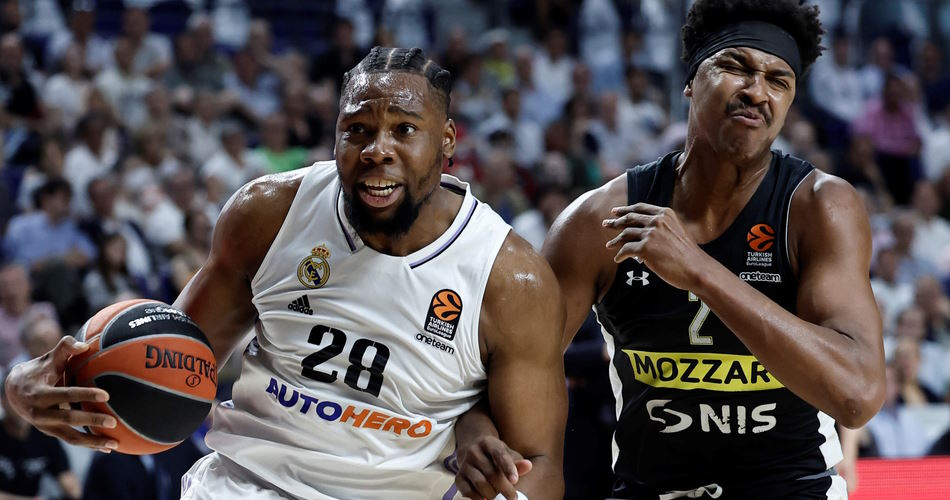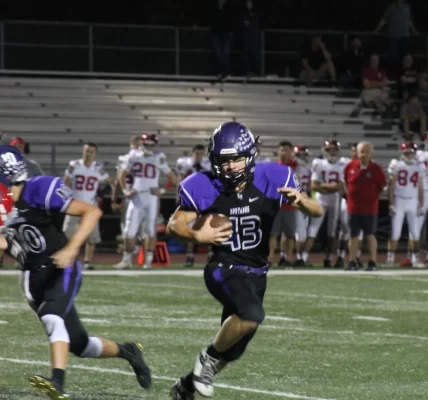Introduction
EuroLeague basketball is a premier sports competition that stands as the pinnacle of European basketball. It is the stage where the continent’s best clubs compete in a grueling schedule, providing fans with some of the most exhilarating and high-stakes basketball games outside of the NBA. Over the years, EuroLeague has grown in prestige and popularity, becoming a symbol of top-tier basketball in Europe and beyond. This blog delves into the rich history, structure, teams, and unforgettable moments of EuroLeague basketball, offering a comprehensive overview of what makes this league so special.
The History Of EuroLeague Basketball
The origins of EuroLeague basketball can be traced back to the early 1950s when the first pan-European competition was organized. The competition, initially known as the FIBA European Champions Cup, was established in 1958 by FIBA (International Basketball Federation). It was modeled after the European Cup in football (soccer), which aimed to determine the best club team on the continent.
Real Madrid won the first title in 1958, setting the stage for decades of intense competition. Over the years, the competition evolved, with more teams from different countries joining, thus increasing the level of competition and diversity. The 1990s saw significant changes, as clubs and leagues demanded more control over the competition’s structure and finances. This led to the establishment of EuroLeague in 2000, which replaced the original FIBA competition.
EuroLeague’s rebranding marked a new era of professional basketball in Europe, with the league taking charge of its own commercial rights, broadcasting deals, and overall governance. This transition brought about a more stable and lucrative environment for clubs, players, and stakeholders, helping EuroLeague grow into one of the most respected basketball leagues globally.
Structure And Format Of EuroLeague Basketball

EuroLeague Basketball operates differently from traditional domestic leagues, featuring a unique competition format that enhances its appeal. The league comprises 18 teams that qualify based on their performance in domestic leagues or through long-term licenses, ensuring a mix of stability and competitive merit.
The regular season consists of a round-robin format, where each team plays against every other team twice, once at home and once away. This results in a total of 34 games per team, making the regular season a marathon that tests the consistency, depth, and resilience of the squads. The top eight teams at the end of the regular season advance to the playoffs, which are held in a best-of-five series format.
The playoffs are fiercely contested, as teams vie for a spot in the Final Four—a single-elimination tournament that determines the EuroLeague Basketball champion. The Final Four is one of the most anticipated events in European sports, with fans from all over the continent and beyond gathering to witness the crowning of Europe’s best basketball team.
The Powerhouses Of EuroLeague Basketball
EuroLeague has been dominated by a few clubs that have consistently performed at the highest level, earning a reputation as the powerhouses of European basketball. These teams boast rich histories, large fan bases, and a tradition of winning that makes them perennial favorites in the competition.
Real Madrid: Is arguably the most successful club in EuroLeague history, with numerous titles to their name. Known for their fast-paced and high-scoring style, Real Madrid has produced some of the greatest players in European basketball, including legends like Dražen Petrović, Arvydas Sabonis, and Luka Dončić. The club’s dominance is not just limited to Spain but extends across Europe, where they are a constant threat in the competition.
FC Barcelona: Another Spanish giant, is known for its fierce rivalry with Real Madrid, both in domestic competitions and in EuroLeague. FC Barcelona has a storied history in the league, with multiple titles and a reputation for producing top talent. The club’s success in EuroLeague is a testament to its commitment to excellence, both on and off the court.
CSKA Moscow: Represents the pride of Russian basketball in EuroLeague. With a strong financial backing and a tradition of success, CSKA Moscow has been a dominant force in the league for decades. Known for their physical and disciplined style of play, CSKA Moscow has won numerous EuroLeague titles, making them one of the most feared teams in the competition.
Olympiacos And Panathinaikos: The two Greek powerhouses, have also left an indelible mark on EuroLeague. Both clubs have won multiple titles and have some of the most passionate fan bases in European basketball. Their intense rivalry, known as the “Derby of the Eternal Enemies,” is one of the highlights of the EuroLeague season, often producing unforgettable moments and high-stakes drama.
The Globalization Of EuroLeague
While EuroLeague Basketball is firmly rooted in European basketball tradition, its impact extends far beyond the continent. The league has become a global phenomenon, attracting players, coaches, and fans from all over the world. The globalization of EuroLeague is evident in the diversity of its rosters, with players from different continents bringing their unique styles and skills to the competition.
One of the key factors behind EuroLeague’s global appeal is its role as a stepping stone for players aspiring to reach the NBA. Over the years, numerous EuroLeague stars have made the leap to the NBA, where they have achieved great success. Players like Luka Dončić, Kristaps Porziņģis, and Nikola Mirotić honed their skills in EuroLeague before making a significant impact in the NBA. This trend has helped raise the profile of EuroLeague, making it a crucial part of the global basketball ecosystem.
Moreover, EuroLeague’s broadcasting deals and digital presence have expanded its reach to new markets. Fans from all over the world can now follow the league’s games and stay updated on the latest news and developments. This global exposure has attracted international sponsors and partners, further boosting the league’s commercial value and visibility.
The Tactical Brilliance Of EuroLeague Basketball

One of the aspects that set EuroLeague apart from other basketball competitions is the tactical sophistication of the games. EuroLeague teams are known for their meticulous preparation, strategic depth, and adaptability. The league is a hotbed of tactical innovation, with coaches constantly seeking ways to outsmart their opponents and gain a competitive edge.
Defense plays a crucial role in EuroLeague basketball, with teams often prioritizing defensive solidity over offensive flair. This results in games that are intense, low-scoring, and fiercely contested. Teams employ a variety of defensive schemes, including zone defenses, full-court presses, and switching strategies, to disrupt their opponents’ rhythm and force them into difficult shots.
On the offensive side, EuroLeague teams are known for their ball movement, spacing, and execution. The emphasis is on team play, with players constantly moving, setting screens, and making the extra pass to create open shots. This style of play contrasts with the more isolation-heavy approach often seen in the NBA, making EuroLeague basketball a unique and refreshing experience for fans.
Coaching is another critical aspect of EuroLeague’s tactical brilliance. The league boasts some of the best basketball minds in the world, with coaches who have a deep understanding of the game and a knack for making in-game adjustments. Legendary coaches like Željko Obradović, Ettore Messina, and Xavi Pascual have left a lasting legacy in the EuroLeague, inspiring a new generation of coaches to push the boundaries of what is possible in basketball.
The Fan Experience In EuroLeague
EuroLeague Basketball is not just about the games on the court; it’s also about the passionate and dedicated fans who create an electric atmosphere in the arenas. EuroLeague fans are known for their unwavering support, creativity, and enthusiasm, making them an integral part of the competition’s identity.
The atmosphere at EuroLeague games is unlike any other in basketball. Fans bring drums, flags, and banners to the games, creating a carnival-like environment that adds to the excitement. The noise levels can be deafening, especially during crucial moments of the game, as fans chant, sing, and cheer for their teams. This intensity is particularly evident in rivalry games, where the stakes are high, and emotions run deep.
One of the unique aspects of EuroLeague Basketball fan culture is the close connection between the fans and the teams. Unlike in some other professional sports leagues, EuroLeague teams often have a more community-based identity, with fans feeling a strong sense of ownership and pride in their clubs. This connection is reflected in the way fans interact with the players, coaches, and management, creating a family-like atmosphere within the club.

Conclusion
EuroLeague basketball is a celebration of the sport at its highest level, combining tactical brilliance, intense competition, and passionate fan support to create a unique and unforgettable experience. As the league continues to evolve and grow, it will undoubtedly produce more memorable moments, legendary players, and thrilling games that will captivate basketball fans around the world. Whether you’re a die-hard fan or a casual observer, EuroLeague offers something special for everyone, making it one of the most exciting and prestigious competitions in the world of sports.











